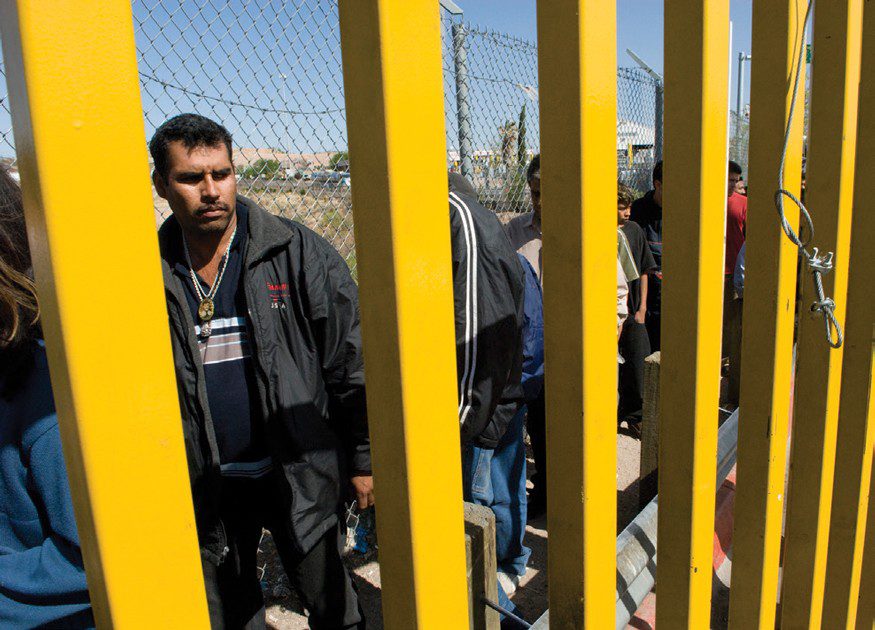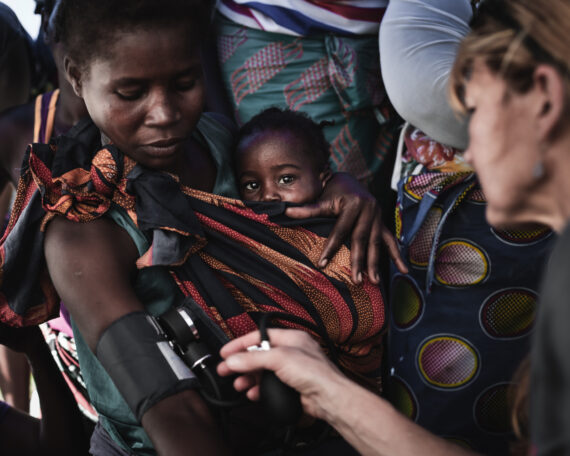By Jordan Teague
In an April 2017 blog post, we explained why building a border wall could increase hunger both at home and abroad. The Trump administration had floated the idea of cutting off assistance to Mexico if it refused to pay for a wall. Only a small percentage of U.S. aid supports programs to reduce hunger in Mexico—for example, by strengthening agricultural productivity—but this support is very important to people living with hunger.
Now, at the end of 2018, the threat to cut off aid has been dropped, but a political fight over funding for a border wall could delay and ultimately shortchange funding for both U.S. safety-net programs and initiatives to help hungry people overseas. This is because Congress has not yet passed the two appropriations bills that contain these programs, Agriculture and State/Foreign Operations. Both appropriations bills are at risk of being held up or becoming entangled with a dispute over Homeland Security appropriations. The president is demanding $5 billion in funding for a wall on the southern border.
It is important to note that the United States spends nearly 17 times as much on border security than on assistance to Central American countries. That is even without the additional border wall funding that the administration is currently demanding. If even a fraction of the $11 billion spent on patrolling the southern border in 2017 was instead channeled to help families in Central America feed and nourish themselves, hunger could be reduced significantly—along with the pressure to migrate caused by hunger and malnutrition.
Many of the people coming to the U.S. border to seek asylum are from Guatemala and Honduras. The appropriations bills fund programs that help resolve the root causes of migration, commonly known as “push factors.” The State/Foreign Operations appropriations bill, for example, contains funding for Feed the Future, which supports efforts to strengthen agriculture and reduce poverty and malnutrition in both Guatemala and Honduras.
In the regions of Honduras where Feed the Future works, poverty has been reduced by 22 percent and stunting—a condition caused by chronic malnutrition in early childhood—by 30 percent since 2012. In 2016, nearly 5,000 households escaped extreme poverty, and Feed the Future farmers sold $50 million in agricultural products. Guatemala’s Feed the Future areas have also made progress against poverty and stunting.
Appropriations fights in Washington, D.C., should not put people living with hunger at further risk. Instead, efforts such as Feed the Future and other anti-hunger programs should be scaled up in countries where large numbers of people face hunger and malnutrition, including in Central America.
Holding up State/Foreign Operations appropriations with a dispute over border wall funding would also put an important increase in maternal/child nutrition funding at risk. This year, both the House and the Senate appropriations committees recommended increases to the Nutrition in Global Health Programs sub-account for fiscal year 2019. The House recommended an increase of $20 million.
Our analysis shows that this additional $20 million could go a long way in improving nutrition, which leading economists agree is one of the most effective and one of the most cost-effective forms of development assistance. Both Guatemala and Honduras could share in these improvements.
The funding increase could:
- save an additional 2,000 children’s lives,
- prevent stunting and the lifelong damage it causes for nearly 37,000 additional children,
- treat 200,000 children suffering from acute malnutrition,
- support mothers in providing exclusive breastfeeding to an additional 368,000 children, and
- prevent more than 810,000 women from developing anemia.
As my colleague Angelique Walker-Smith wrote recently, Jesus began his earthly life as a migrant fleeing to Egypt (Matthew 2:13-23), where he and his family found safety and welcome. Our country must respect the right of people at our southern border to seek asylum, while also helping to enable their home countries to improve the conditions that forced them to flee. Only by showing this support will we be following in Jesus’ footsteps of hospitality and hope.
Jordan Teague is international policy analyst at Bread for the World Institute.



